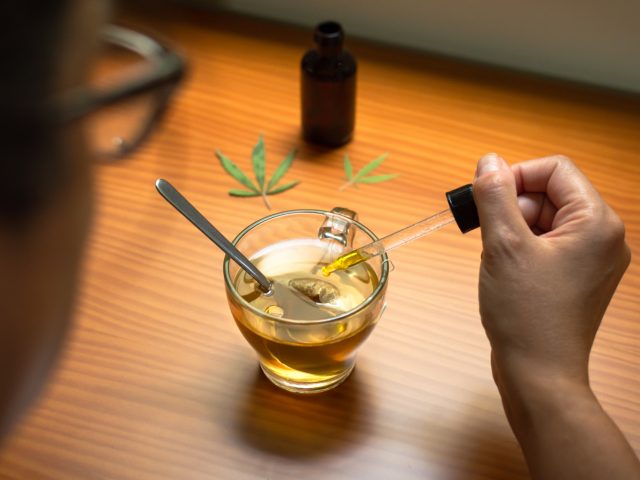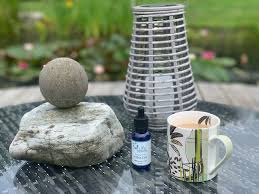
CBD and Skin Care
In recent years, there has been a surge in the popularity of cannabidiol (CBD) in various wellness and beauty products. From oils and balms to serums and creams, CBD has made its way into the skincare industry, promising a natural and effective solution for various skin concerns. In this blog post, we will explore the potential benefits of CBD for skin care and dive into the science behind this trending ingredient.
Understanding CBD and Its Source
CBD, short for cannabidiol, is one of the many chemical compounds found in the Hemp sativa plant. Unlike its psychoactive counterpart, tetrahydrocannabinol (THC), CBD does not induce a “high” feeling, making it a safe and non-intoxicating option for skincare products.
The CBD used in skincare products usually comes from hemp plants, which are a variety of Hemp sativa with low THC levels. Thanks to the 2018 Farm Bill in the United States, hemp-derived CBD became legal, paving the way for the influx of CBD-infused skincare products into the market.
CBD and the Skin: How Does It Work?
Our skin has its own endocannabinoid system (ECS), a complex network of receptors that help regulate various physiological functions. The ECS plays a crucial role in maintaining skin health, including its response to environmental stressors, inflammation, and cellular balance. CBD interacts with the ECS by binding to its receptors, potentially influencing its functions and offering several benefits for the skin.
1. Anti-Inflammatory Properties
One of the most notable benefits of CBD for the skin is its anti-inflammatory properties. Inflammation is a common cause of various skin issues, such as redness, acne, and psoriasis. CBD can help reduce inflammation by modulating the immune response in the skin, potentially leading to calmer and less irritated skin.
2. Acne and Blemish Control
Acne is a prevalent skin concern affecting millions of people worldwide. CBD’s anti-inflammatory and antibacterial properties may help combat acne by reducing inflammation, sebum production, and the growth of acne-causing bacteria. Moreover, its calming effect can aid in preventing further breakouts caused by stress and other triggers.
3. Moisturization and Hydration
CBD is rich in essential fatty acids, such as omega-3 and omega-6, which are beneficial for maintaining the skin’s natural barrier function. By strengthening the skin’s barrier, CBD-infused products can enhance moisture retention, keeping the skin hydrated and supple.
4. Anti-Aging Effects
As we age, our skin experiences a gradual loss of elasticity and the appearance of fine lines and wrinkles. CBD’s antioxidant properties can help neutralize free radicals, reducing oxidative stress on the skin and potentially slowing down the aging process. Additionally, its interaction with the ECS may promote collagen production, contributing to firmer and more youthful-looking skin.
5. Eczema and Psoriasis Relief
Eczema and psoriasis are chronic skin conditions characterized by red, itchy, and inflamed patches. CBD’s anti-inflammatory properties can help alleviate the symptoms associated with these conditions, providing relief and soothing the affected areas.

CBD Skincare Products: What to Look For
With the abundance of CBD-infused skincare products on the market, it’s essential to make informed choices to ensure you reap the benefits. Here are some factors to consider when selecting CBD skincare products:
1. CBD Concentration
Check the product label for the CBD concentration. Higher concentrations are generally more potent, but it’s best to start with lower concentrations if you are new to CBD skincare.
2. Full Spectrum vs. Broad Spectrum vs. CBD Isolate
Full-spectrum CBD contains all the naturally occurring compounds found in the hemp plant, including THC (within the legal limit). Broad-spectrum CBD contains multiple cannabinoids but is THC-free. CBD isolate is pure CBD without any other compounds. The entourage effect suggests that full-spectrum CBD may be more effective due to the combined actions of all compounds, including THC (in small amounts). However, if you are concerned about THC or undergo drug testing, broad-spectrum or CBD isolate may be more suitable.
3. Third-Party Testing
Choose products from reputable brands that undergo third-party testing. This ensures that the product contains the stated amount of CBD and is free from contaminants.
4. Other Ingredients
Consider the other ingredients in the product. Look for natural, nourishing, and non-comedogenic ingredients that complement the effects of CBD.
Conclusion
CBD has undoubtedly captured the attention of the skincare industry with its promising potential for promoting healthier, more radiant skin. While scientific research on CBD and its specific effects on the skin is still ongoing, the existing evidence and numerous anecdotal reports indicate that CBD-infused skincare products may offer several benefits. Check out their web page to explore further about CBD.
As with any new skincare product, it’s essential to perform a patch test and consult with a dermatologist, especially if you have any existing skin conditions or concerns. When used correctly and in combination with a well-rounded skincare routine, CBD products could become a valuable addition to your quest for healthier and more balanced skin.







